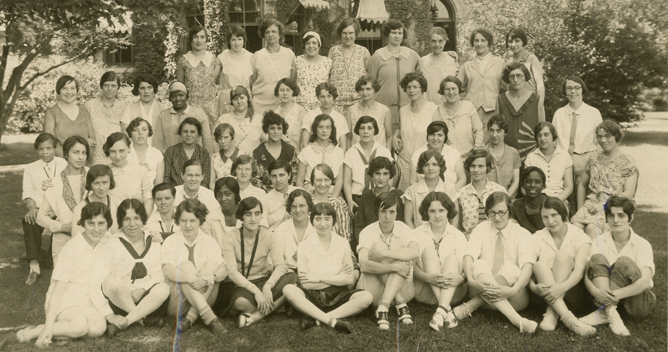Speaker Bio
Michelle Moravec is an associate professor of History and Director of the Program in gender and women's studies at Rosemont College in Philadelphia. She has published widely on the women's liberation movement in the United States. During a recent sabbatical she began exploring the digital humanities and now participates via Twitter (@professmoravec) and a blog (historyinthecity.blogspot.com). Her interests center on the differences between digital history and the digital humanities and in how digital tools allow historians to answer their questions.
Abstract
This papers explore a range of women's liberation periodicals in the United States from 1969 to 1981 to answer the question, what can digital history can tell us about a bigger picture of the movement than that normally depicted in women's history. By exploring thousands of articles written as part of women's liberation and using various digital tools, such as word frequency, collocates and other text mining and topic modeling, a much larger group of authors and participants in women's liberation can be drawn into the histories of the movement.
Questions of particular interest center on changes to women's liberation discourses over time and whether certain patterns of digital history evidence reveal correlation with certain "strands" of feminist thought.
Asking Big Questions with Digital Tools
This papers explore a range of women's liberation periodicals in the United States from 1969 to 1981 to answer the question, what can digital history can tell us about a bigger picture of the movement than that normally depicted in women's history. By exploring thousands of articles written as part of women's liberation and using various digital tools, such as word frequency, collocates and other text mining and topic modeling, a much larger group of authors and participants in women's liberation can be drawn into the histories of the movement.
Questions of particular interest center on changes to women's liberation discourses over time and whether certain patterns of digital history evidence reveal correlation with certain "strands" of feminist thought.
